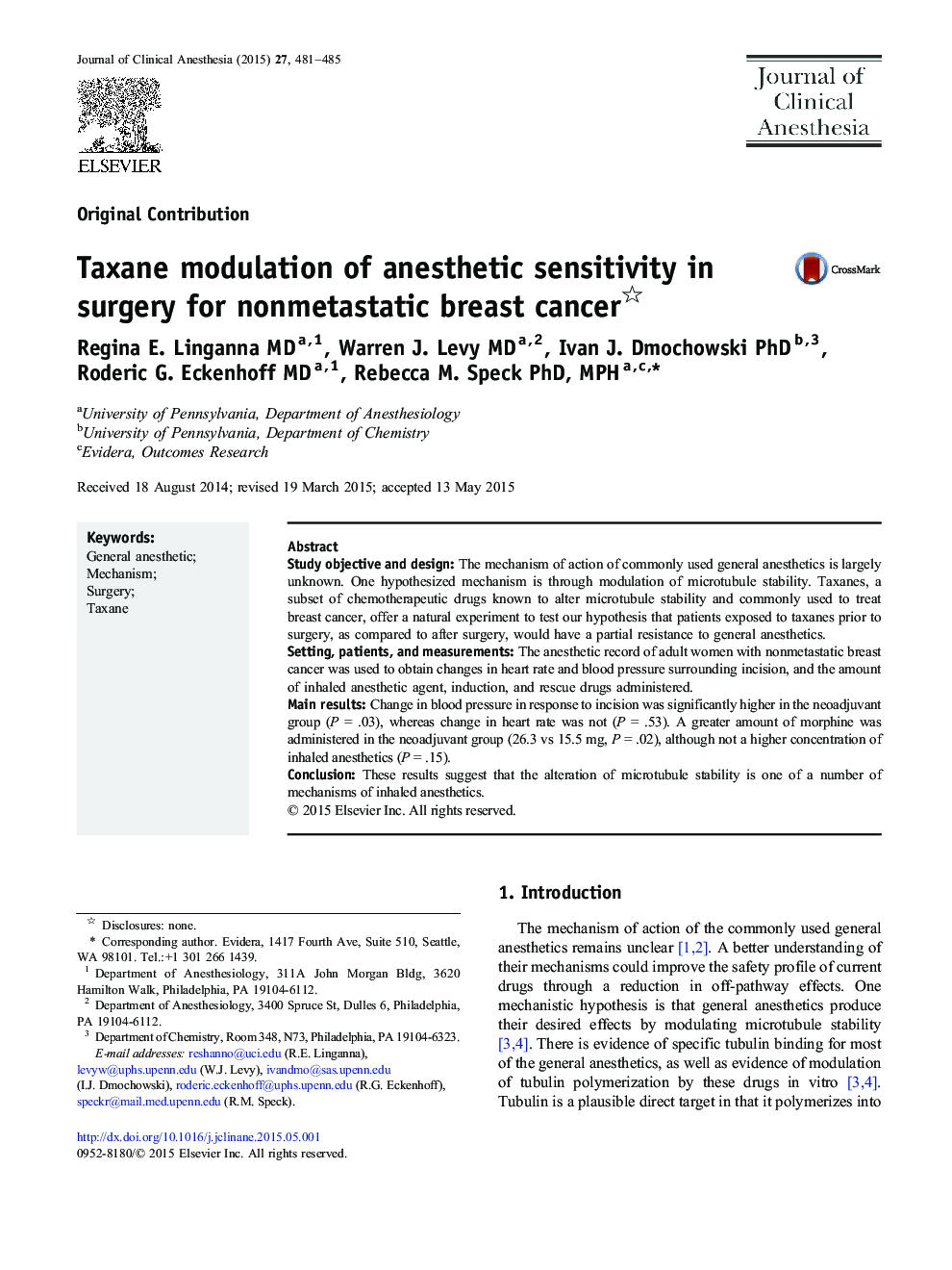| Article ID | Journal | Published Year | Pages | File Type |
|---|---|---|---|---|
| 2762224 | Journal of Clinical Anesthesia | 2015 | 5 Pages |
•Destabilization of microtubules is a possible mechanism of general anesthetics.•Breast cancer patients treated with taxanes have hyperstabilized microtubules.•Taxane-treated patients will be resistant to anesthetics that destabilize microtubules.•Hemodynamic changes in response to incision were a surrogate for anesthetic depth.•We report a greater change in blood pressure for taxane treated patients.
Study objective and designThe mechanism of action of commonly used general anesthetics is largely unknown. One hypothesized mechanism is through modulation of microtubule stability. Taxanes, a subset of chemotherapeutic drugs known to alter microtubule stability and commonly used to treat breast cancer, offer a natural experiment to test our hypothesis that patients exposed to taxanes prior to surgery, as compared to after surgery, would have a partial resistance to general anesthetics.Setting, patients, and measurementsThe anesthetic record of adult women with nonmetastatic breast cancer was used to obtain changes in heart rate and blood pressure surrounding incision, and the amount of inhaled anesthetic agent, induction, and rescue drugs administered.Main resultsChange in blood pressure in response to incision was significantly higher in the neoadjuvant group (P = .03), whereas change in heart rate was not (P = .53). A greater amount of morphine was administered in the neoadjuvant group (26.3 vs 15.5 mg, P = .02), although not a higher concentration of inhaled anesthetics (P = .15).ConclusionThese results suggest that the alteration of microtubule stability is one of a number of mechanisms of inhaled anesthetics.
